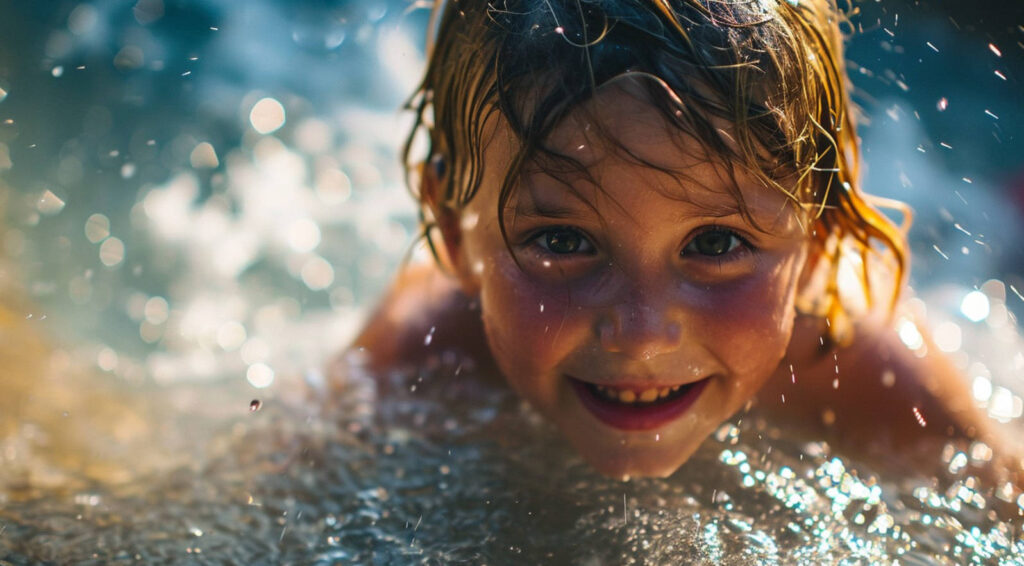Swimming is more than just a fun activity for babies. It serves as an effective way to support their physical and cognitive growth. Engaging your little one in water activities not only strengthens their muscles but also improves coordination and enhances their overall development. By introducing swimming at an early stage, parents can help their babies establish a strong foundation for a healthy and active lifestyle.
Why Water Activities Are Beneficial for Babies
Water activities provide a unique environment for physical development. The buoyancy of water reduces the impact of gravity, allowing babies to move freely and without strain. This freedom encourages natural movements that might be more challenging on land, such as kicking and stretching, which are essential for building muscle tone and strength.
The gentle resistance of water helps to develop core stability and limb coordination. As babies splash, float, and reach for objects, they are unknowingly exercising their muscles and improving their motor skills. These movements also stimulate the vestibular system, which is responsible for balance and spatial awareness, laying the groundwork for walking and other physical milestones.
How Swimming Promotes Physical Growth
Water-based activities involve full-body movements that promote overall physical development. Swimming engages the arms, legs, core, and neck, helping babies build strength evenly across their bodies. The rhythmic kicking and paddling motions enhance flexibility and improve joint mobility, both of which are critical for growth and mobility.
Another significant benefit of swimming is its impact on lung and heart function. Activities like floating and splashing encourage babies to regulate their breathing and adapt to changing water pressures, supporting cardiovascular health. These exercises also improve stamina, which will benefit your baby as they grow and become more active.

Cognitive and Emotional Advantages of Baby Swimming
Beyond physical benefits, swimming contributes to cognitive development and emotional well-being. The sensory stimulation provided by water—its temperature, texture, and motion—activates neural pathways that support brain growth. Exposure to water environments also promotes relaxation, reducing stress and aiding in better sleep patterns.
Swimming classes or group activities foster social interaction, helping babies become comfortable around others and building their confidence in new environments. The bonding experience between parent and baby during these sessions is also invaluable, reinforcing trust and security.
Tips for Safe Baby Swimming Sessions
While swimming offers numerous benefits, safety is a top priority. Always ensure the water temperature is warm enough to keep your baby comfortable, as their bodies are more sensitive to cold. Choose a clean, well-maintained pool with trained instructors who specialize in infant swimming classes. Proper swim diapers and flotation devices are essential to keep your baby secure and the environment hygienic.
It is also important to start slowly. Begin with short sessions to help your baby acclimate to the water. Gradually introduce more complex movements as they grow more comfortable and confident. Never leave your baby unattended near water, even for a moment, and ensure that any swimming program aligns with their developmental stage.
Expert Opinions on Baby Swimming
Research and advice from pediatric and aquatic specialists highlight the importance of starting early. According to the American Academy of Pediatrics, supervised swimming lessons can be introduced as early as one year of age, provided safety precautions are in place. Other experts emphasize the psychological benefits of swimming, citing its ability to reduce anxiety and boost self-esteem.
Additionally, studies published in reputable journals, such as the National Institutes of Health, have documented the long-term advantages of early aquatic activities, including improved motor skills, better cognitive function, and enhanced physical health.
Encouraging Lifelong Health Through Water Activities
Introducing your baby to swimming not only supports their physical development but also instills a love for water activities that can last a lifetime. By prioritizing safety and choosing age-appropriate exercises, parents can ensure their little one enjoys the many benefits of swimming while building strength, confidence, and emotional resilience.
